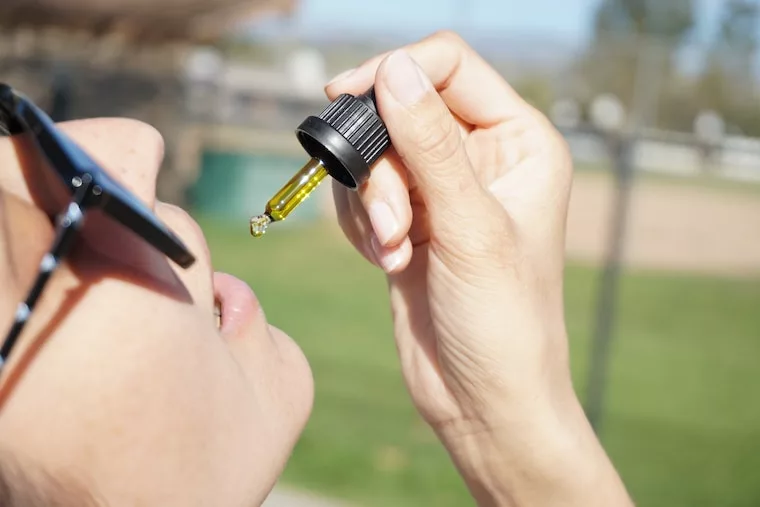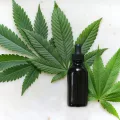Have you been feeling a little off lately after taking CBD? You’re not alone.
While CBD is generally considered safe, it can cause some side effects.
In this article, we’ll take a closer look at CBD side effects and how to manage them.
Jump to Section
Introduction
CBD, short for cannabidiol, is a natural compound found in the hemp plant.
It’s known for its therapeutic benefits, such as reducing anxiety, relieving pain, and improving sleep. However, like any supplement or medication, CBD can cause side effects, especially if taken in high doses.
What is CBD?
CBD is a non-psychoactive compound, meaning it won’t get you high.
It works by interacting with the body’s endocannabinoid system, which is responsible for regulating various processes such as sleep, mood, and appetite.
Brief explanation of CBD side effects
CBD side effects can range from mild to severe, depending on the dose, method of consumption, and individual differences.
Common side effects include dry mouth, dizziness, changes in appetite, and drowsiness.
Serious side effects are rare but can occur in some individuals.
Common CBD Side Effects
Dry Mouth
Dry mouth is a common side effect of CBD. It occurs when the saliva production is reduced, leading to a feeling of dehydration in the mouth.
This can be uncomfortable, but it’s usually not a cause for concern.
Explanation of why this happens
CBD can interact with the receptors in the salivary glands, reducing the amount of saliva produced.
How to manage dry mouth caused by CBD
- Drink plenty of water
- Chew sugar-free gum or suck on sugar-free candy to stimulate saliva production
- Use a lip balm to moisturize your lips
Dizziness or Lightheadedness
Dizziness or lightheadedness can occur after taking CBD. It’s usually a mild side effect, but it can be alarming if it happens suddenly.
Explanation of why this happens
CBD can lower blood pressure, leading to a feeling of lightheadedness or dizziness.
How to manage dizziness or lightheadedness caused by CBD
- Sit down if you feel lightheaded
- Drink water or other fluids to stay hydrated
- Avoid sudden movements or standing up too quickly
Changes in Appetite
CBD can affect your appetite, either increasing or decreasing it. This can be a desirable or undesirable side effect, depending on your goals.
Explanation of why this happens
CBD can interact with the receptors in the brain that regulate appetite, leading to changes in hunger and satiety.
How to manage changes in appetite caused by CBD
- Monitor your food intake and adjust accordingly
- Eat a healthy, balanced diet
- Consult a healthcare provider if you’re experiencing significant changes in appetite
Drowsiness
Drowsiness is a common side effect of CBD, especially at high doses.
It can be beneficial if you’re taking CBD for sleep or relaxation, but it can be a problem if you need to stay alert.
Explanation of why this happens
CBD can interact with the receptors in the brain that regulate sleep and wakefulness, leading to a feeling of drowsiness.
How to manage drowsiness caused by CBD
- Take CBD before bedtime
- Avoid driving or operating heavy machinery after taking CBD
- Reduce the dose if drowsiness becomes a problem
Serious CBD Side Effects
While serious CBD side effects are rare, they can occur in some individuals. These side effects may include:
- Nausea and vomiting
- Diarrhea
- Changes in mood or behavior
- Liver damage
If you’re experiencing any of these side effects, stop taking CBD and contact a healthcare provider immediately.
Factors That Affect CBD Side Effects
Several factors can affect the way CBD affects your body and the side effects you experience.
Dosage
The dosage of CBD you take can affect the severity and type of side effects you experience.
It’s important to follow the recommended dosage on the product label or as prescribed by a healthcare provider.
Method of Consumption
The way you consume CBD can also affect the side effects you experience. Some common methods of CBD consumption include:
- Oral consumption (edibles, capsules, tinctures)
- Inhalation (vaping, smoking)
- Topical application (creams, lotions)
Each method has its own advantages and disadvantages, and they can affect the onset, duration, and intensity of the side effects.
Quality of CBD
The quality of the CBD product you use can also affect the side effects you experience.
Look for products that are third-party tested, use organic hemp, and are free of contaminants such as pesticides or heavy metals.
Individual Differences
Finally, individual differences can play a role in the way CBD affects your body.
Factors such as age, weight, metabolism, and health can all affect the way your body responds to CBD.
Conclusion
CBD is a relatively safe and well-tolerated compound, but it can cause side effects in some people.
By understanding the common side effects of CBD and how to manage them, you can make the most of this natural remedy.
CBD Side Effects FAQ
Is CBD safe?
CBD is generally considered safe, but it can cause side effects in some individuals.
It’s important to start with a low dose and gradually increase it to minimize side effects.
What are the common side effects of CBD?
Common side effects of CBD include dry mouth, dizziness, changes in appetite, and drowsiness.
Can CBD cause liver damage?
CBD has been associated with liver damage in some animal studies, but the evidence is not conclusive.
More research is needed to determine the safety of CBD for liver health.
How can I manage CBD side effects?
To manage CBD side effects, drink plenty of water, follow the recommended dosage, and consult a healthcare provider if you’re experiencing significant side effects.
Can CBD interact with other medications?
CBD can interact with some medications, particularly those that are metabolized in the liver.
Consult a healthcare provider before taking CBD if you’re taking any other medications.
I am a CBD enthusiast and creator of DJ Hemp who has made it my mission to enlighten the world about the cannabis industry through thought-provoking literary works.
I have successfully fostered an open-minded, inquisitive community that is eager to learn more about the potential benefits of CBD.
Contact me at [email protected] for assistance.





